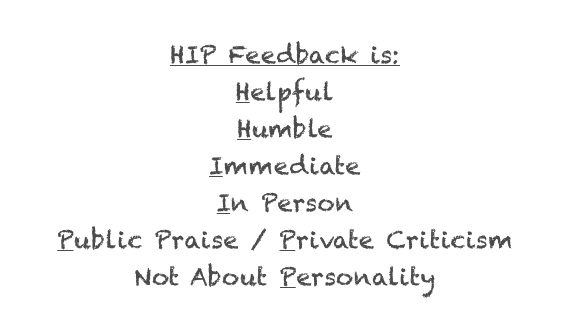Tips to Avoid Manipulatively Insincere Praise
If you think you've given praise that was Manipulatively Insincere, check out these tips for moving towards Radical Candor!

If you think you've given praise that was Ruinously Empathetic, check out these tips for moving toward Radical Candor!

Just saying “good job” is not helpful, and saying, “you are great” can actually be counterproductive. If somebody has rated your praise as Ruinously Empathetic, you’re not challenging them enough. Try being specific enough to show how to build on the success.
It’s to offer praise that shows exactly what was great to help people know what to do more of. Focus on what specifically you admired about the work, not on trying to make people “feel good.” Don’t say, “You did great, you should feel happy!” Instead, say, “Your idea increased efficiency 45% by eliminating the grunt work we all hated to do. Your idea not only improved profits, it made our jobs more interesting. Here’s how to build on it.”
Vague praise like “good job” can sound arrogant. Stating “good job” implies you think you are the arbiter of what’s good and what’s not. Try saying “I admire the way you ___” Owning your opinions and explaining specifically why you think what you think demonstrates humility.
The faster you praise something great after you see it, the easier it is to be specific enough for the praise to have real meaning.
If so, get more specific. Usually, the praise will have more meaning. Sometimes, you’ll learn that you’re praising the wrong thing or the wrong person…
Be specific about what the person did, the impact, and the context so that the whole team learns. Don’t say, “Sal did a great job.” Instead say, “Sal came up with the idea for X and then got budget for it. As a result, you are all 85% more efficient. That means less grunt work and more time for cool projects for everyone. Thank you Sal!”
Instead be specific about what was good, why, and how to build on it. The reward for good work is more good work, not a pat on the shoulder.

Need help practicing Radical Candor? Then you need The Feedback Loop (think Groundhog Day meets The Office), a 5-episode workplace comedy series starring David Alan Grier that brings to life Radical Candor’s simple framework for navigating candid conversations.
You’ll get an hour of hilarious content about a team whose feedback fails are costing them business; improv-inspired exercises to teach everyone the skills they need to work better together, and after-episode action plans you can put into practice immediately to up your helpful feedback EQ.
We’re offering Radical Candor readers 10% off the self-paced e-course. Follow this link and enter the promo code FEEDBACK at checkout.

If you think you've given praise that was Manipulatively Insincere, check out these tips for moving towards Radical Candor!

If you think you've given praise that was Obnoxiously Aggressive, check out these tips for moving towards Radical Candor!

The purpose of praise is to help people know what to do more of. Check out these tips for offering Radical Candor: